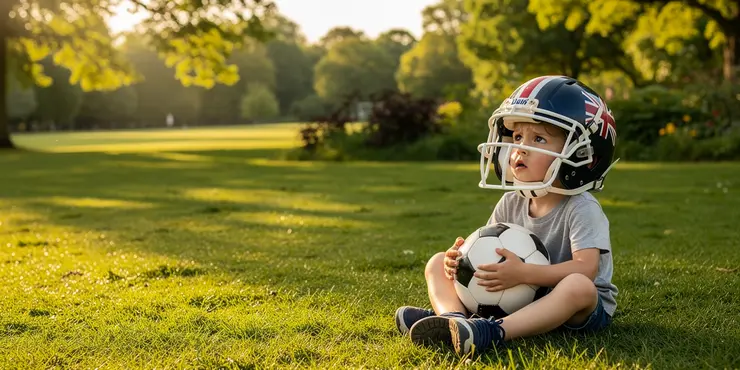
Find Help
More Items From Ergsy search
-
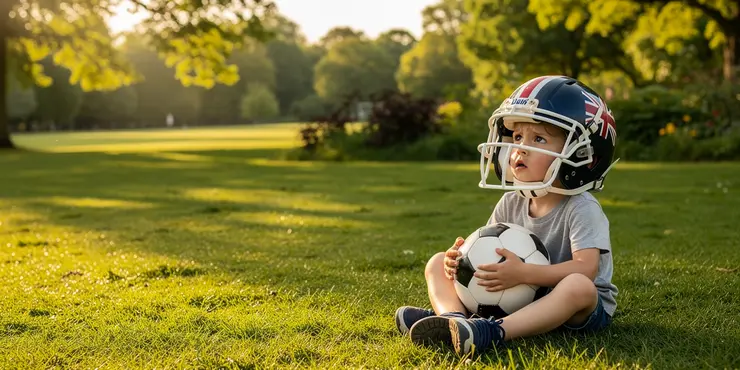
Are children more susceptible to concussions than adults?
Relevance: 100%
-
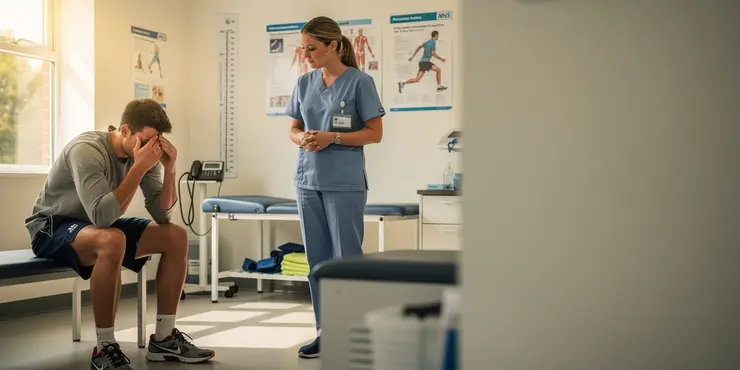
What is Concussion?
Relevance: 48%
-
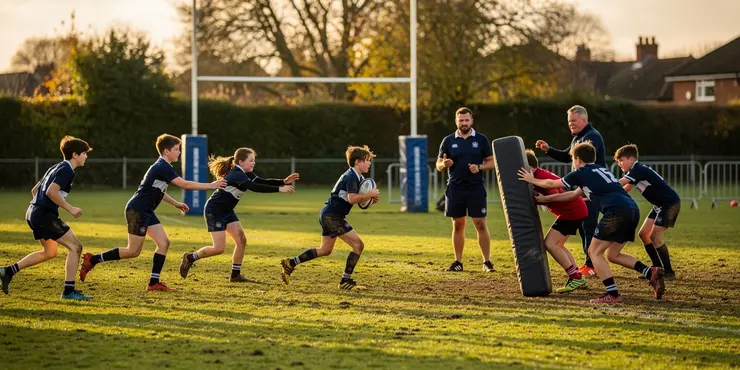
What age groups are most at risk for concussions in rugby?
Relevance: 46%
-
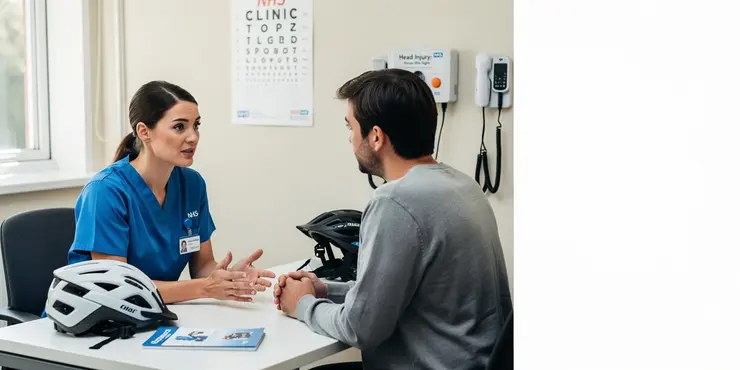
Is there any way to prevent concussions?
Relevance: 44%
-
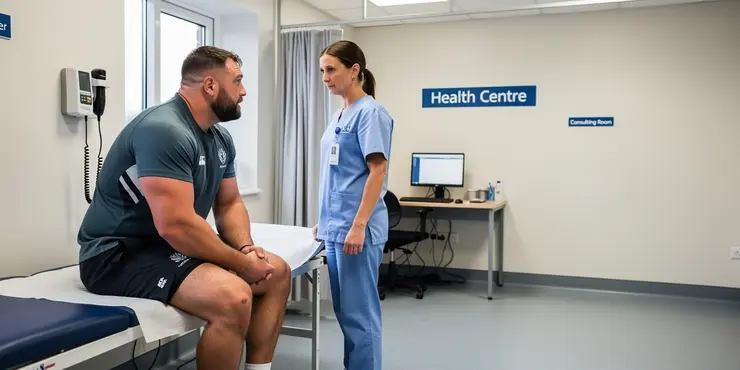
Are Concussions common in Rugby?
Relevance: 43%
-
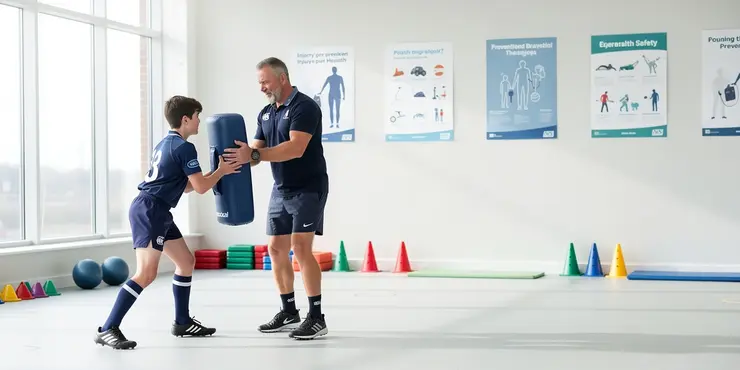
How can concussions be prevented?
Relevance: 41%
-
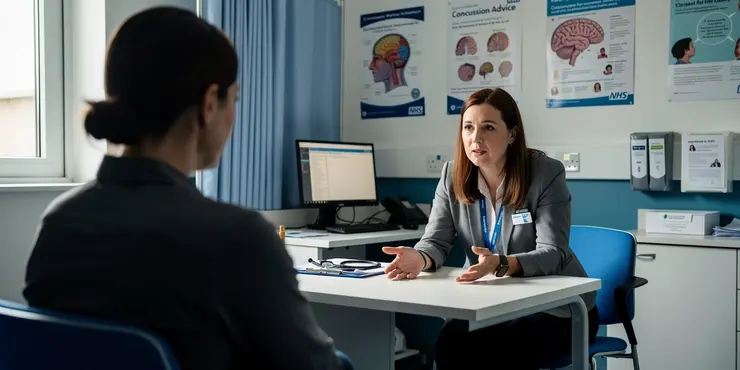
How is a concussion diagnosed?
Relevance: 41%
-
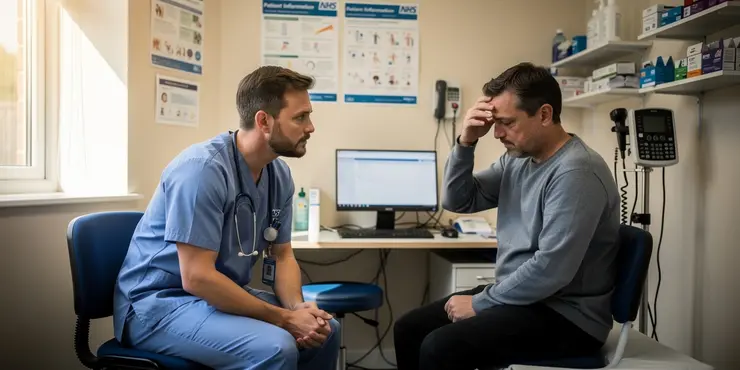
How is a concussion diagnosed?
Relevance: 41%
-
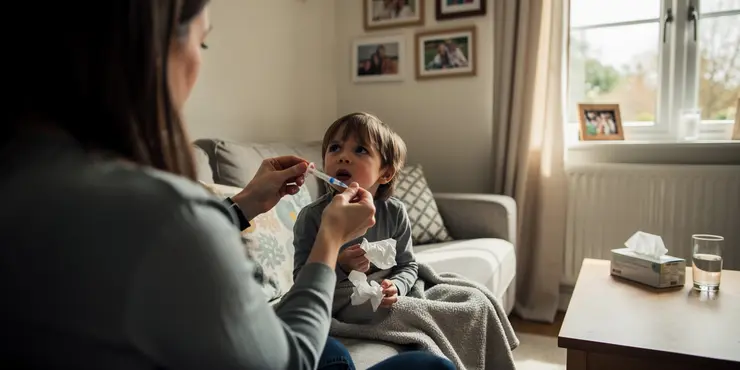
Can children take the same cold medications as adults?
Relevance: 41%
-
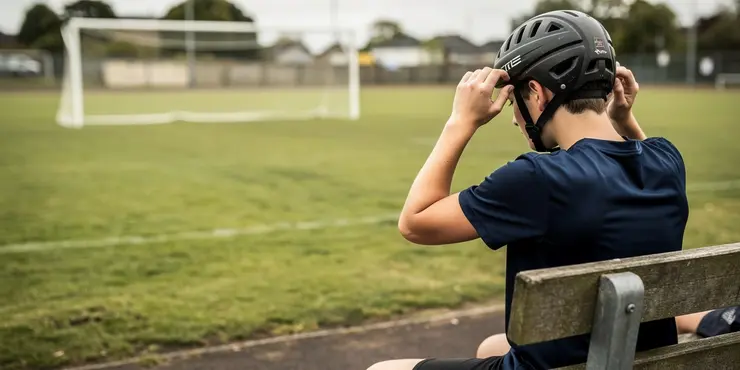
How can concussions be prevented?
Relevance: 41%
-
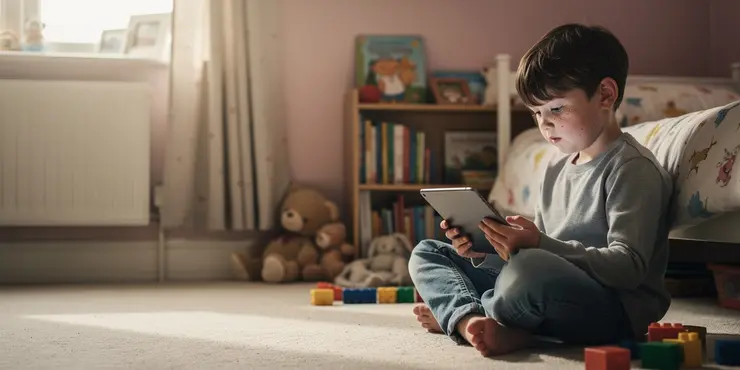
Are children more affected by screen time in relation to sleep than adults?
Relevance: 40%
-
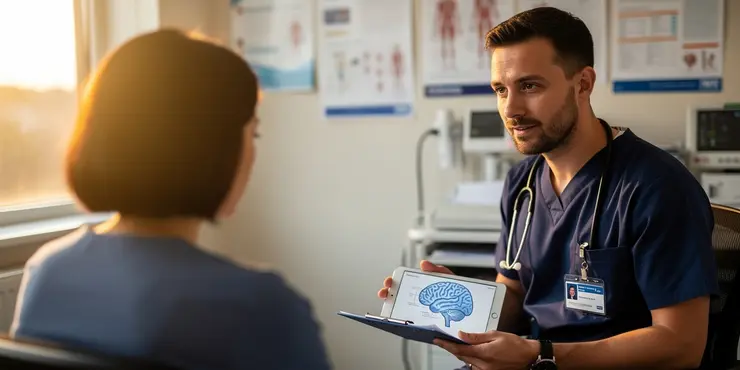
Is headache a symptom of a concussion?
Relevance: 40%
-
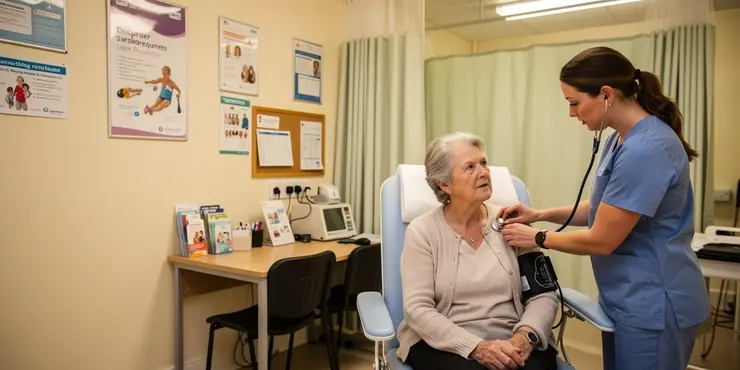
Is it safe to sleep after a concussion?
Relevance: 38%
-
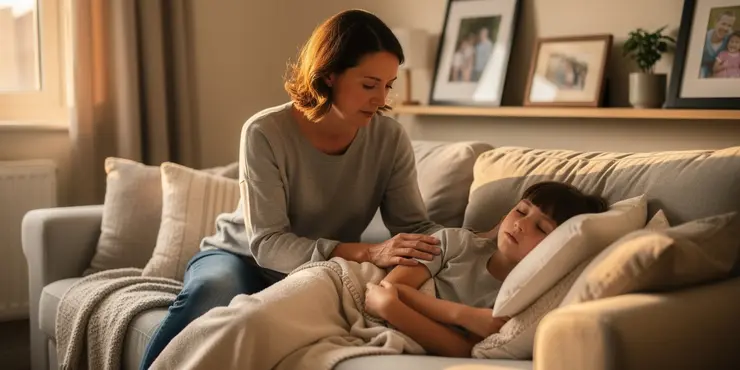
Is it safe to sleep after a concussion?
Relevance: 38%
-
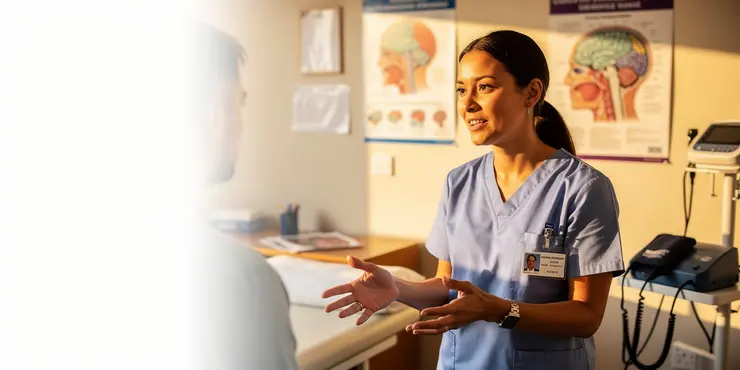
When is it safe to return to normal activities after a concussion?
Relevance: 37%
-
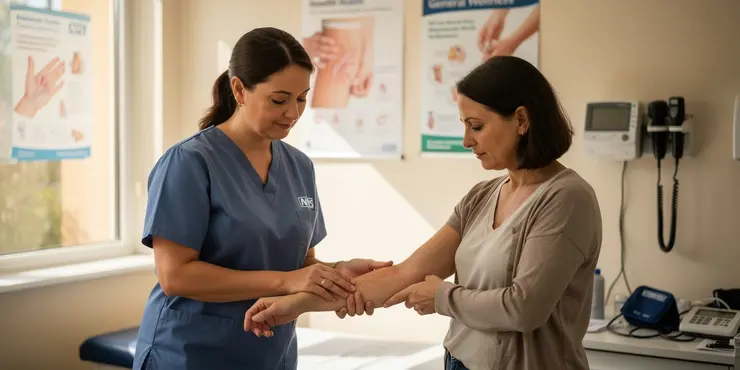
Can adults get impetigo?
Relevance: 37%
-
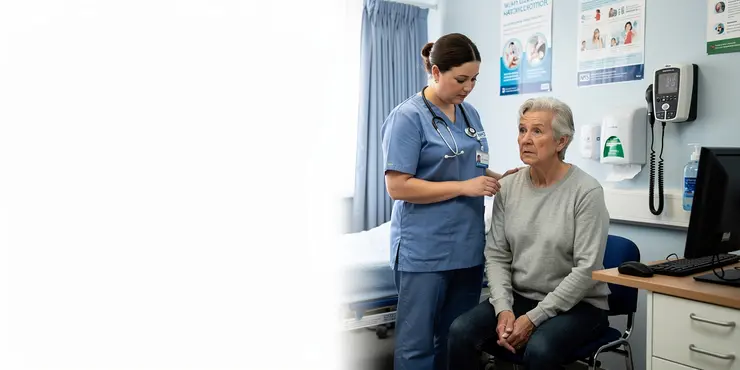
Can a concussion cause memory problems?
Relevance: 37%
-
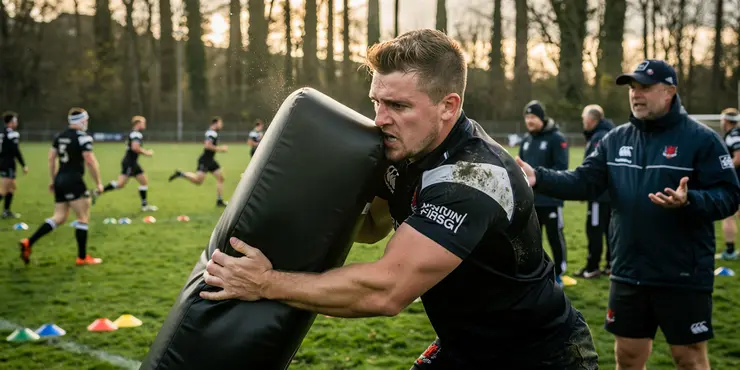
What causes concussions in rugby?
Relevance: 37%
-
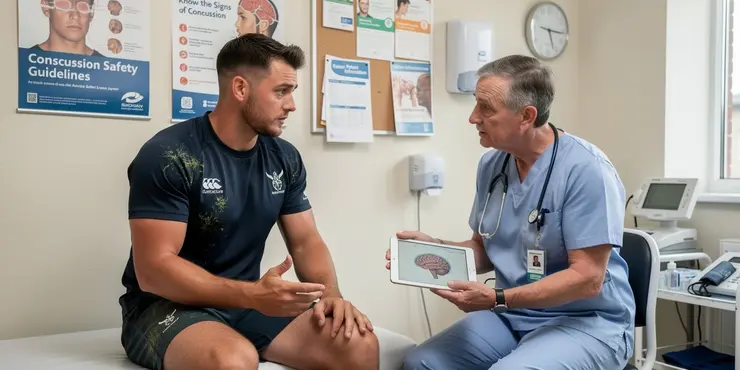
Are helmets required in rugby to prevent concussions?
Relevance: 37%
-
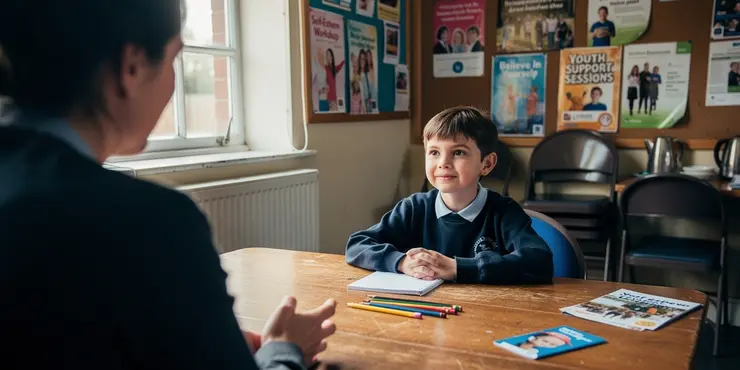
How does self-esteem affect a child's susceptibility to grooming?
Relevance: 37%
-
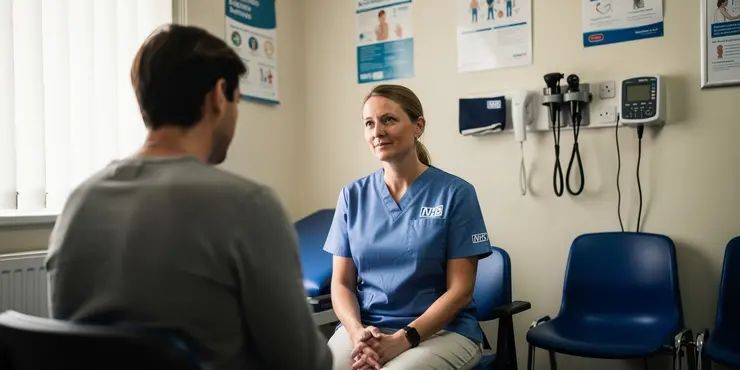
What are common symptoms of a concussion?
Relevance: 37%
-
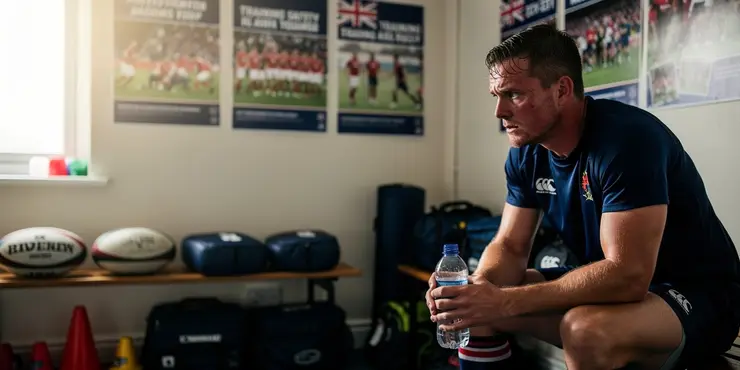
Is there a protocol for managing concussions in rugby?
Relevance: 37%
-
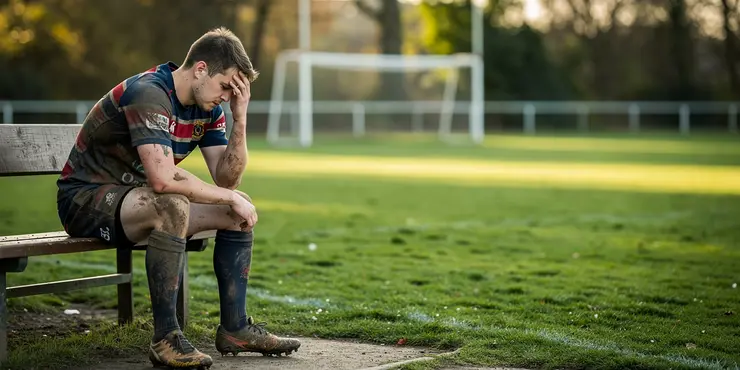
Can playing sports increase the risk of a concussion?
Relevance: 36%
-
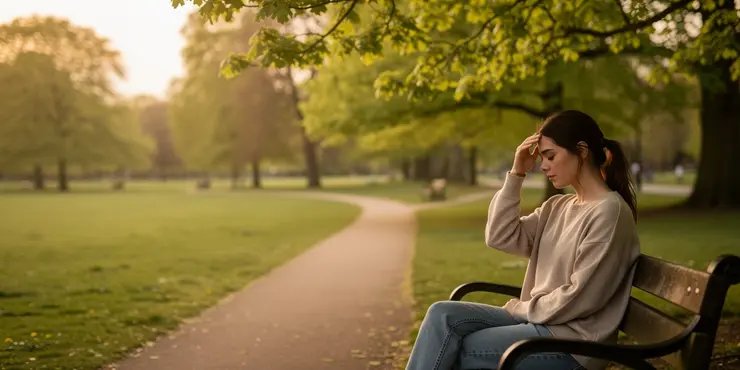
When is it safe to return to normal activities after a concussion?
Relevance: 36%
-
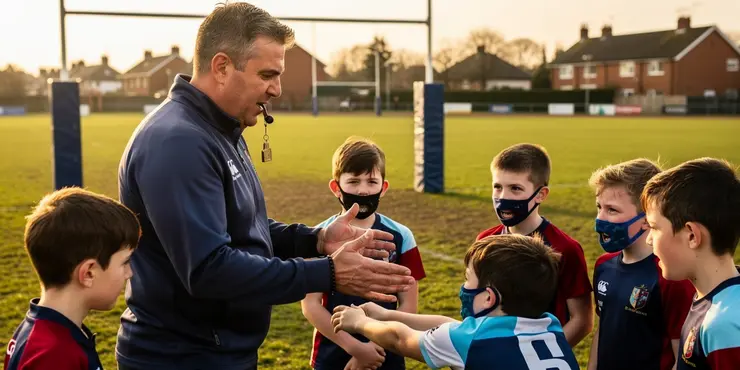
How can concussions be prevented in rugby?
Relevance: 35%
-
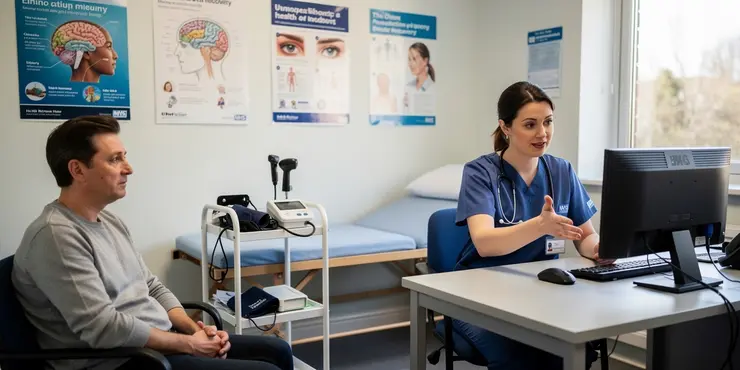
Should people with a concussion avoid screens and technology?
Relevance: 35%
-
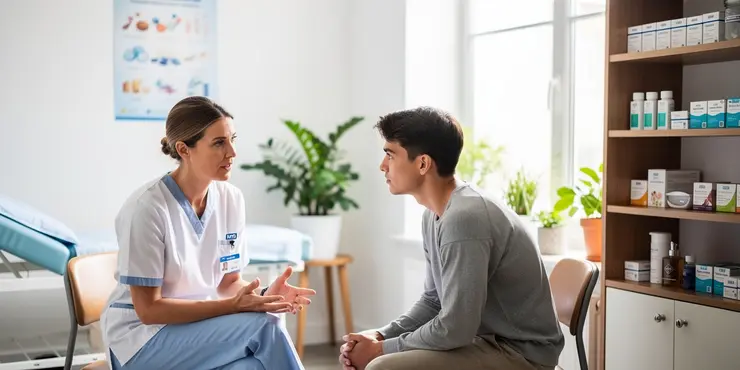
Can concussions lead to mental health issues?
Relevance: 34%
-
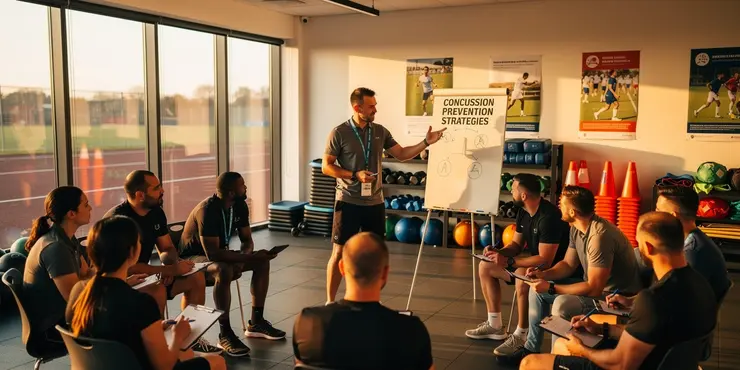
Is training available for coaches to help prevent concussions?
Relevance: 34%
-
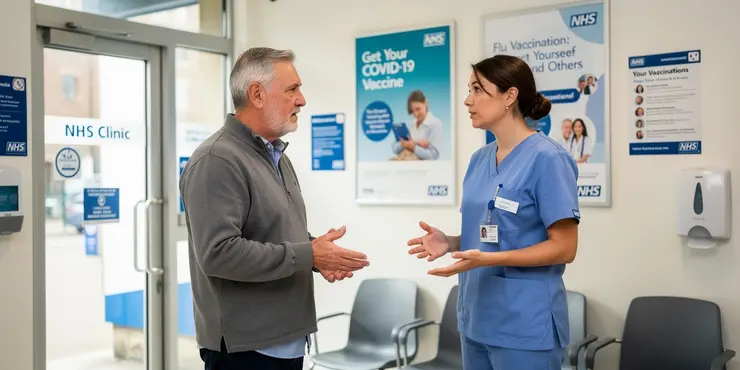
Are adults in the UK at risk from measles?
Relevance: 34%
-
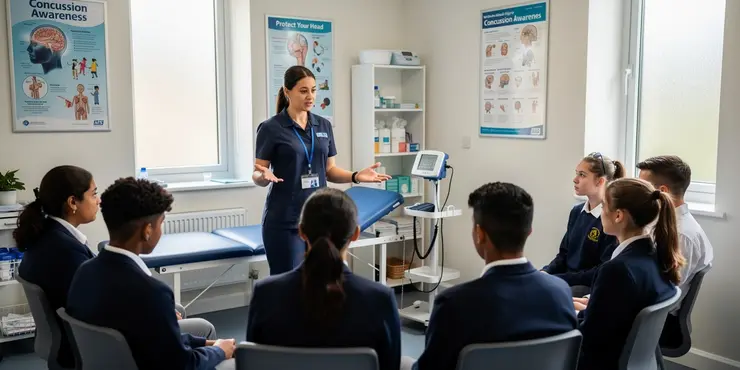
What role do schools play in managing concussions?
Relevance: 34%
-
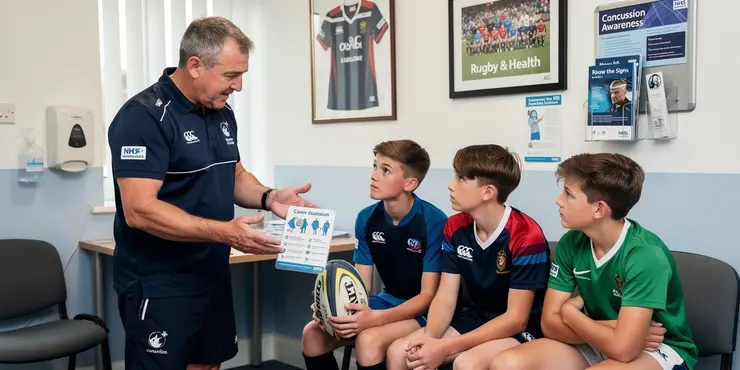
Is there a difference in concussion rates between amateur and professional rugby?
Relevance: 34%
-
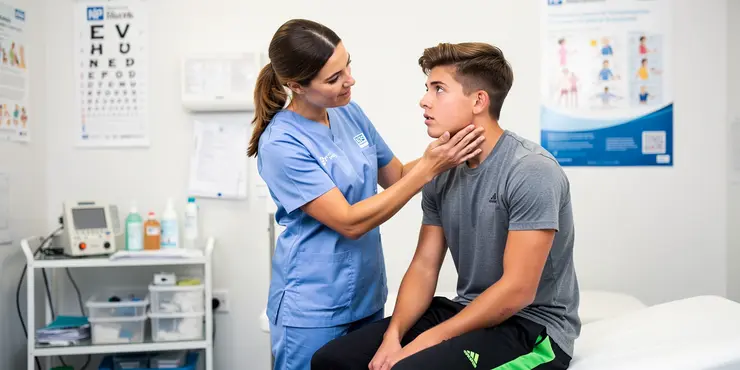
Can concussions occur without a direct blow to the head?
Relevance: 34%
-
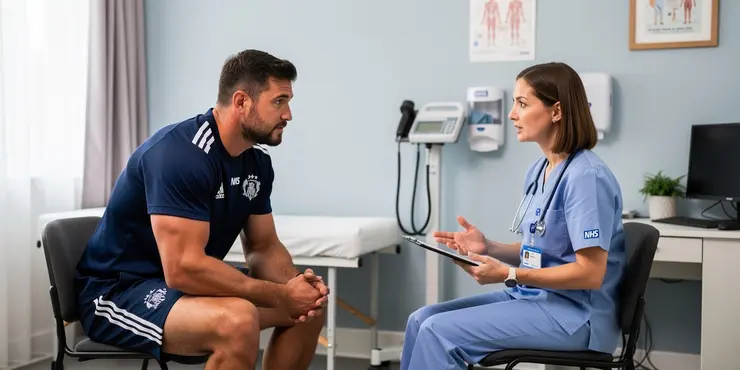
How do concussions impact long-term health in rugby players?
Relevance: 33%
-
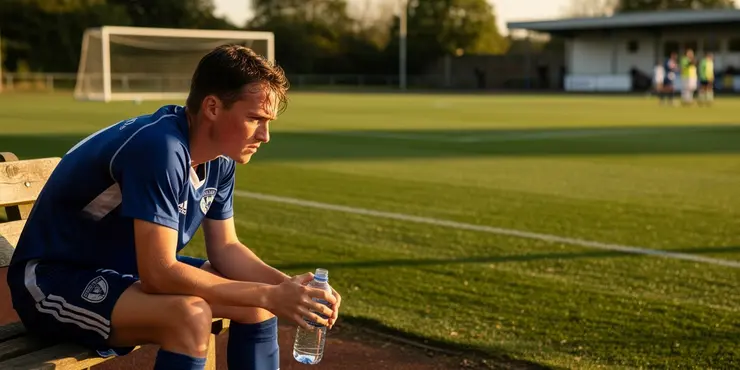
Can players return to play on the same day after a suspected concussion?
Relevance: 33%
-
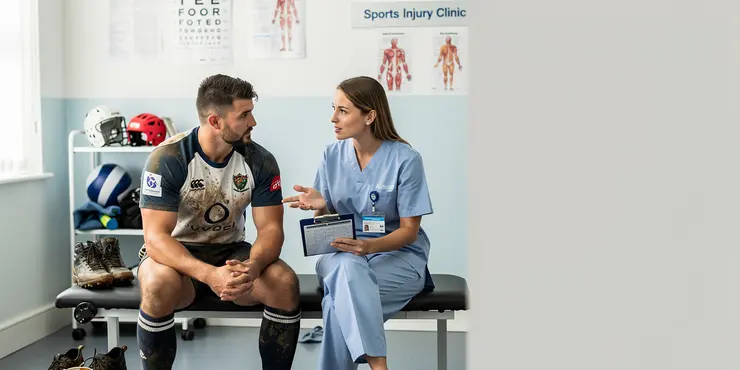
What support is available for rugby players who suffer concussions?
Relevance: 32%
-
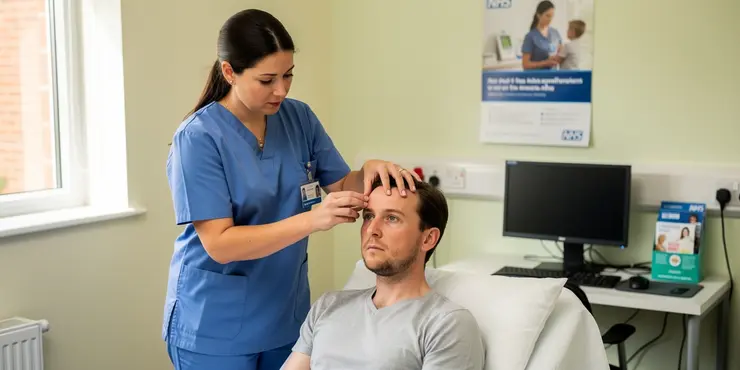
What immediate steps should be taken if someone has a concussion?
Relevance: 32%
-
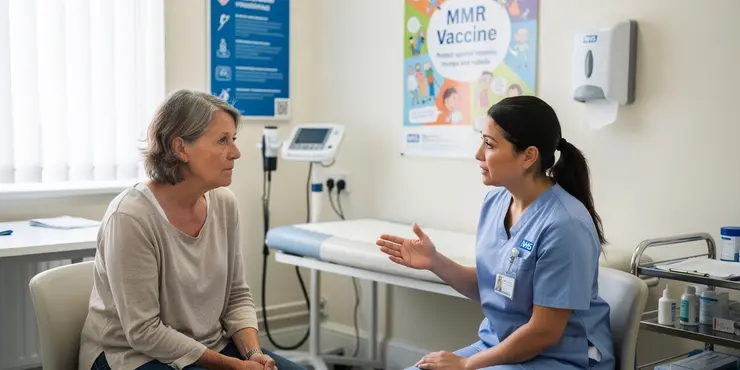
Can adults get measles?
Relevance: 31%
-

How to treat diarrhoea and vomiting at home (adults and children aged 5 and over) | NHS
Relevance: 30%
-
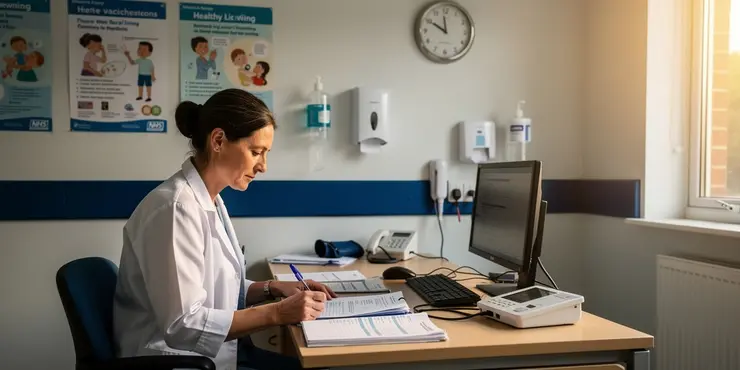
Can adults get chickenpox?
Relevance: 29%
-
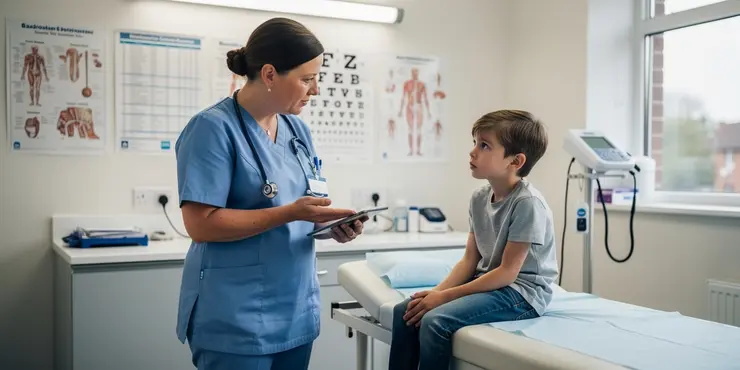
Is Baxdrostat suitable for children?
Relevance: 28%
Are Children More Susceptible to Concussions Than Adults?
The Anatomy of Youth
Children's brains are in a critical developmental stage, which means their biological and physiological structures differ from those of adults. The head-to-body ratio in children is larger compared to adults, which makes them more prone to head injuries. The brain tissue in children is also softer, providing less natural protection against trauma. The neck muscles of children are not as well developed as those of adults, limiting their ability to stabilize the head during impacts.Sports and Play
In the UK, children frequently engage in sports and activities that can pose a risk of concussions, such as football, rugby, and cycling. These activities involve high physical impact, increasing the likelihood of head injuries. While protective gear can reduce risk, the proper use and enforcement of safety measures vary. Thus, while participation in sports is essential for physical and social development, it does increase exposure to potential concussive events.Symptoms and Diagnosis
Children often have difficulties articulating symptoms of a concussion, such as dizziness or nausea, which can complicate diagnosis. Parents and teachers must be vigilant for signs such as changes in behaviour, headaches, or concentration difficulties. Younger children might not express their symptoms clearly, necessitating careful observation and prompt medical evaluation when head injuries are suspected.Recovery and Long-term Effects
The recovery process from a concussion is crucial and can sometimes be longer in children than in adults. Children's brains are still developing, which may result in different recovery timelines. Cumulative or repeated concussions without adequate rest and recovery can lead to long-term cognitive and behavioural issues, underscoring the importance of careful management and follow-up.Preventative Measures
Effective prevention involves education for children, coaches, and parents. Proper techniques in sports, wearing appropriate helmets, and adhering to safety protocols all play a crucial role in reducing the risk of concussions. Schools and sports organisations in the UK are increasingly adopting guidelines and strategies to better protect young athletes and educate on recognizing and responding to concussions. In summary, children are more susceptible to concussions than adults due to anatomical, physiological, and activity-related factors. Awareness and preventive approaches are essential in managing this risk effectively.Are Children More Likely to Get Concussions Than Adults?
Children's Bodies and Brains
Children's brains are still growing, which makes them different from adults' brains. Kids have bigger heads compared to their bodies, so they are more likely to hurt their heads. Their brain is also softer, so it gets hurt more easily. Children's necks are not as strong as adults', so it's harder for them to keep their heads steady during bumps.Sports and Play
In the UK, many kids play sports like football, rugby, or ride bikes. These sports can make it easier to get a concussion because they involve lots of running and clashes. Wearing safety gear like helmets can help, but using them properly is very important. Playing sports is great for kids' health and making friends, but there is a chance of hurting their heads.Signs and Checking for Concussions
Kids may not always be able to tell you how they feel if they have a concussion. They might feel dizzy or sick, but not know how to say it. Parents and teachers should watch for things like mood changes, headaches, or problems paying attention. If a child hits their head, it's important to keep an eye on them and see a doctor if needed.Getting Better and Future Concerns
It can take kids longer to get better from a concussion than adults. Their brains are still growing, so they may need more time to heal. If a child gets another concussion before the first one heals, it can cause long-term problems. That's why it's very important to make sure they rest and recover fully.How to Prevent Concussions
To stop concussions, everyone needs to learn how to stay safe. This includes kids, coaches, and parents. Kids should learn how to play sports safely, wear helmets, and follow the rules. Schools and sports groups in the UK are making more plans to keep young athletes safe and teach people about concussions. In summary, kids are more likely to get concussions than adults because of their growing bodies and active play. Knowing about the risks and how to prevent them is very important.Frequently Asked Questions
Are children more susceptible to concussions than adults?
Yes, children are generally more susceptible to concussions due to their developing brains and thinner skulls.
Why are children's concussions more serious than adults'?
Children's brains are still developing, so concussions can impact their cognitive functions and development more significantly compared to adults.
What are common symptoms of a concussion in children?
Common symptoms include headache, dizziness, confusion, nausea, vomiting, fatigue, and changes in mood or behaviour.
How can I tell if my child has a concussion?
Look for symptoms such as confusion, difficulty concentrating, sensitivity to light and noise, and any changes in mood or sleep patterns.
Should parents seek medical attention if they suspect their child has a concussion?
Yes, it's important to seek medical evaluation if a concussion is suspected to ensure proper diagnosis and management.
How long does it take for a child to recover from a concussion?
Recovery time varies, but children often take longer to recover than adults, ranging from a few days to several weeks.
Can children return to sports immediately after a concussion?
No, children should not return to sports until they are fully recovered and cleared by a healthcare professional.
What steps can help in a child's recovery from a concussion?
Rest is crucial. Limiting physical and cognitive activities, following medical advice, and gradually returning to normal activities help in recovery.
Are there long-term effects of concussions in children?
There can be long-term effects, especially with repeated concussions, such as learning difficulties and emotional problems.
Is it safe for children to sleep after a concussion?
Yes, it's generally safe. However, monitoring them initially for any worsening symptoms is advisable, as per medical advice.
What sports have the highest risk of concussions for children?
Contact sports like rugby, football, hockey, and boxing have higher risks of concussions.
How can concussions in children be prevented?
Using appropriate safety gear, educating children about safe play, and ensuring proper coaching can help prevent concussions.
Should schools have a concussion management policy?
Yes, schools should have protocols for managing concussions and educating staff and students about recognising symptoms.
Can a concussion affect a child’s schooling and learning?
Yes, concussions can affect a child’s ability to concentrate and learn, so temporary academic adjustments may be necessary.
How can parents support a child recovering from a concussion?
Parents can provide a calm environment, limit screen time, encourage rest, and closely follow medical advice during the recovery process.
Do kids get more head injuries than grown-ups?
Yes, kids can get hurt more easily because their brains and heads are still growing.
Why can children's head injuries be more serious than adults'?
When kids hurt their heads, it can be more serious than when grown-ups do. This is because children's brains are still growing.
If a child gets a bump on the head, it's important to tell an adult. They can help take care of the child and see if a doctor is needed.
Using simple tools like picture charts can help kids understand what to do if they bump their heads. Always wear a helmet when riding bikes or playing certain sports.
Children's brains are still growing, so head injuries can affect their thinking and learning more than adults.
What happens if a child gets a bump on the head?
Some common signs to look out for are headaches, feeling dizzy, getting confused, feeling sick, throwing up, feeling very tired, and changes in mood or how you act.
How do I know if my child has a concussion?
A concussion is a type of head injury. It can make your child feel dizzy or confused. If your child hits their head, they might have a concussion. Watch for signs like:
- Your child feels dizzy or wobbly.
- Your child is confused or forgetful.
- Your child has a headache.
- Your child feels sick or vomits.
- Your child is very tired or sleepy.
If you see these signs, it is important to take your child to a doctor. The doctor can check if your child has a concussion. You can also write down what happens, so you remember to tell the doctor everything. Encourage your child to rest and avoid bright lights or loud noises if they have a concussion.
Watch out for signs like feeling confused, having trouble paying attention, being bothered by bright lights or loud sounds, and any changes in how you feel or sleep.
Should parents go to a doctor if they think their child has a head bump?
If your child hits their head, watch them closely.
If you think they might be hurt, take them to see a doctor.
Look out for signs like:
- Feeling dizzy or sleepy
- Headaches
- Feeling sick
Doctors can check if your child is okay.
Keep your child safe and healthy!
Yes, you should go to the doctor if you think you have a concussion. The doctor can tell you if you have one and help you get better.
How long does it take for a child to get better after a concussion?
A concussion is when the head gets a bump, and the brain gets shaken. It can make you feel dizzy or confused.
Most children start feeling better in 1 or 2 weeks. But some children might take longer, maybe a few weeks or even months, to feel good again.
To help the child get better:
- Let them rest. Rest is very important.
- Keep away from screens like TV, phones, and computers for a while.
- Go back to school and play slowly, not all at once.
- If you are worried, talk to a doctor.
How long it takes to get better can be different for each person. Kids often need more time to feel better than grown-ups. This can be from a few days to a few weeks.
- Stay patient and take breaks.
- Use picture books with easy words to learn more.
- Ask a grown-up to help explain things.
Can kids play sports right after a bump on the head?
If a kid hurts their head, they should not play sports right away. They need to rest first.
Here are ways to help:
- Read out loud with them.
- Ask a grown-up for advice.
- Use pictures to explain.
No, kids should not go back to playing sports until they are all better. A doctor or nurse needs to say it is okay first.
How can a child get better after a concussion?
Here are some simple steps to help a child feel better:
- Rest: Make sure the child gets plenty of sleep. Rest helps the brain heal.
- Quiet Time: Keep the surroundings calm and quiet. Avoid loud noises and bright lights.
- Take Breaks: Encourage short naps or breaks when the child feels tired.
- Stay Hydrated: Ensure the child drinks plenty of water.
- Avoid Stress: Keep stress low by keeping the routine simple and relaxed.
- Follow Doctor's Advice: Always follow what the doctor says for care and treatment.
It can also help to use tools like calendars or alarms to remind the child of important tasks or breaks.
Rest is very important. Take a break from doing many things. Listen to what your doctor says. Take it slow and do normal things when you feel better.
Can concussions in children affect them for a long time?
If someone hits their head a lot, it can cause problems for a long time. They might find learning and understanding things harder. They might also feel sad or upset more easily.
Is it okay for kids to sleep after a bump on the head?
Yes, it is usually safe. But it is a good idea to keep an eye on them at first. Watch to see if they get worse. Ask a doctor if you are unsure.
Which sports can cause the most head injuries for kids?
Sports like rugby, football, hockey, and boxing can have more head injuries.
How can we stop kids from getting hurt in the head?
Wearing the right safety gear can keep you safe. Teaching kids how to play safely is important too. Good coaching helps stop head injuries from happening.
Should schools have a plan for handling concussions?
A concussion is when you hurt your head. It can happen if you fall or bump your head.
Schools can make a plan to help if someone gets a concussion. This can keep kids safe.
Having a plan means teachers know what to do. It also helps students get better faster.
If you want to know more, you can ask a teacher or use a tool like a picture chart. This can help you understand better.
Yes, schools need a plan to handle concussions. They should teach teachers and students to spot signs of a concussion.
Can a bump on the head change how a child learns at school?
Yes, when a child gets a concussion, it can make it hard for them to focus and learn. Because of this, they might need some help at school for a little while.
How can parents help a child get better after a concussion?
A concussion is when the head gets a bump, and it affects the brain. Here are ways parents can help their child get better:
- Rest: Make sure your child gets plenty of rest. Let them sleep when they need to.
- Quiet time: Keep the house calm. Turn off loud noises like TV and music.
- Slow start: Let your child do small, easy activities. Don't rush back into sports or games.
- Check with the doctor: Take your child to the doctor. Ask the doctor when it is safe to return to normal activities.
- Listen: Ask your child how they feel. If they have a headache or feel dizzy, tell the doctor.
- Healthy food: Give your child healthy foods and plenty of water.
Parents can use tools and reminders to keep track of their child's rest and activities. Get help from the doctor if needed.
Mums and dads can help by doing a few things:
- Make home a calm and quiet place.
- Let you have less time on computers, tablets, or phones.
- Help you rest and take breaks when you need them.
- Listen to what the doctor says and follow their advice.
Using a timer can help remind you when to take a break. Calm music or a soft toy can help make you feel relaxed too.
Useful Links
This website offers general information and is not a substitute for professional advice.
Always seek guidance from qualified professionals.
If you have any medical concerns or need urgent help, contact a healthcare professional or emergency services immediately.
Some of this content was generated with AI assistance. We’ve done our best to keep it accurate, helpful, and human-friendly.
- Ergsy carfully checks the information in the videos we provide here.
- Videos shown by Youtube after a video has completed, have NOT been reviewed by ERGSY.
- To view, click the arrow in centre of video.
- Most of the videos you find here will have subtitles and/or closed captions available.
- You may need to turn these on, and choose your preferred language.
- Go to the video you'd like to watch.
- If closed captions (CC) are available, settings will be visible on the bottom right of the video player.
- To turn on Captions, click settings .
- To turn off Captions, click settings again.
More Items From Ergsy search
-

Are children more susceptible to concussions than adults?
Relevance: 100%
-

What is Concussion?
Relevance: 48%
-

What age groups are most at risk for concussions in rugby?
Relevance: 46%
-

Is there any way to prevent concussions?
Relevance: 44%
-

Are Concussions common in Rugby?
Relevance: 43%
-

How can concussions be prevented?
Relevance: 41%
-

How is a concussion diagnosed?
Relevance: 41%
-

How is a concussion diagnosed?
Relevance: 41%
-

Can children take the same cold medications as adults?
Relevance: 41%
-

How can concussions be prevented?
Relevance: 41%
-

Are children more affected by screen time in relation to sleep than adults?
Relevance: 40%
-

Is headache a symptom of a concussion?
Relevance: 40%
-

Is it safe to sleep after a concussion?
Relevance: 38%
-

Is it safe to sleep after a concussion?
Relevance: 38%
-

When is it safe to return to normal activities after a concussion?
Relevance: 37%
-

Can adults get impetigo?
Relevance: 37%
-

Can a concussion cause memory problems?
Relevance: 37%
-

What causes concussions in rugby?
Relevance: 37%
-

Are helmets required in rugby to prevent concussions?
Relevance: 37%
-

How does self-esteem affect a child's susceptibility to grooming?
Relevance: 37%
-

What are common symptoms of a concussion?
Relevance: 37%
-

Is there a protocol for managing concussions in rugby?
Relevance: 37%
-

Can playing sports increase the risk of a concussion?
Relevance: 36%
-

When is it safe to return to normal activities after a concussion?
Relevance: 36%
-

How can concussions be prevented in rugby?
Relevance: 35%
-

Should people with a concussion avoid screens and technology?
Relevance: 35%
-

Can concussions lead to mental health issues?
Relevance: 34%
-

Is training available for coaches to help prevent concussions?
Relevance: 34%
-

Are adults in the UK at risk from measles?
Relevance: 34%
-

What role do schools play in managing concussions?
Relevance: 34%
-

Is there a difference in concussion rates between amateur and professional rugby?
Relevance: 34%
-

Can concussions occur without a direct blow to the head?
Relevance: 34%
-

How do concussions impact long-term health in rugby players?
Relevance: 33%
-

Can players return to play on the same day after a suspected concussion?
Relevance: 33%
-

What support is available for rugby players who suffer concussions?
Relevance: 32%
-

What immediate steps should be taken if someone has a concussion?
Relevance: 32%
-

Can adults get measles?
Relevance: 31%
-

How to treat diarrhoea and vomiting at home (adults and children aged 5 and over) | NHS
Relevance: 30%
-

Can adults get chickenpox?
Relevance: 29%
-

Is Baxdrostat suitable for children?
Relevance: 28%


